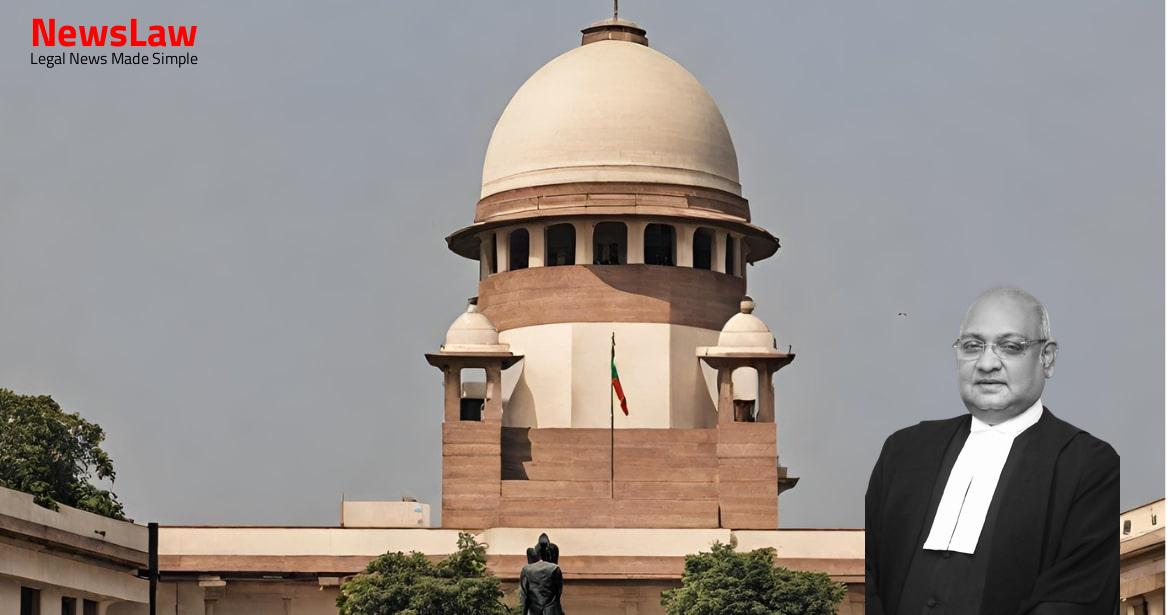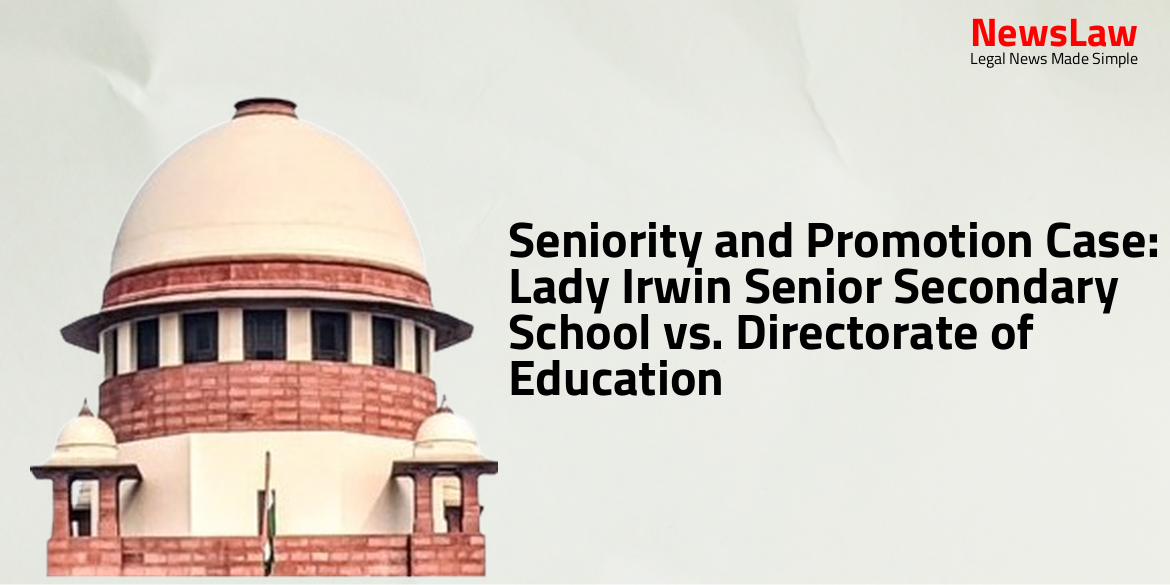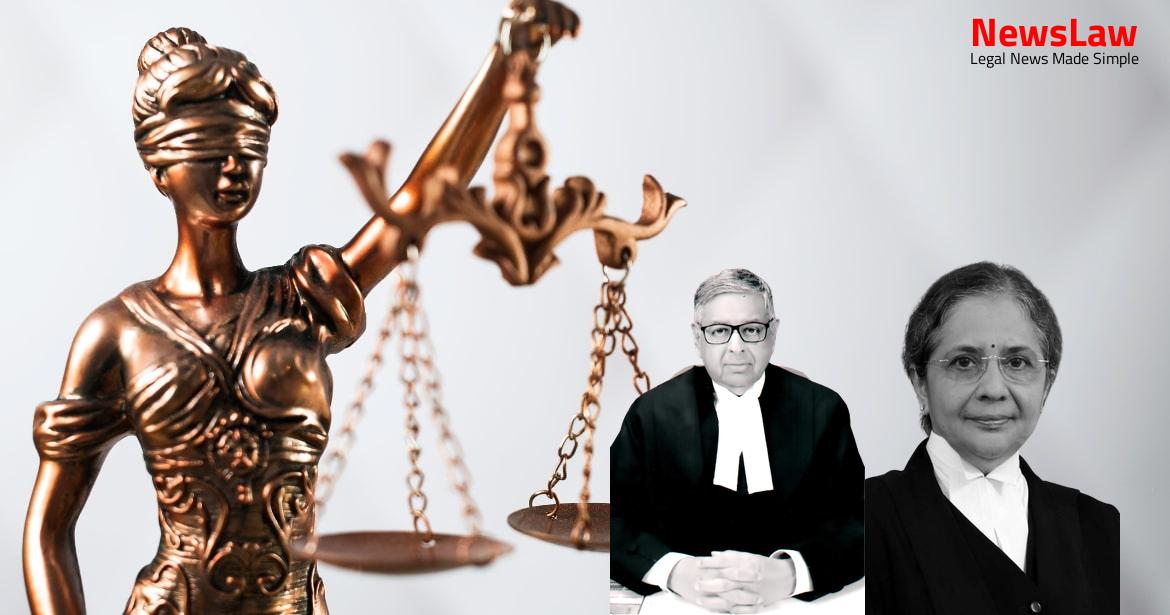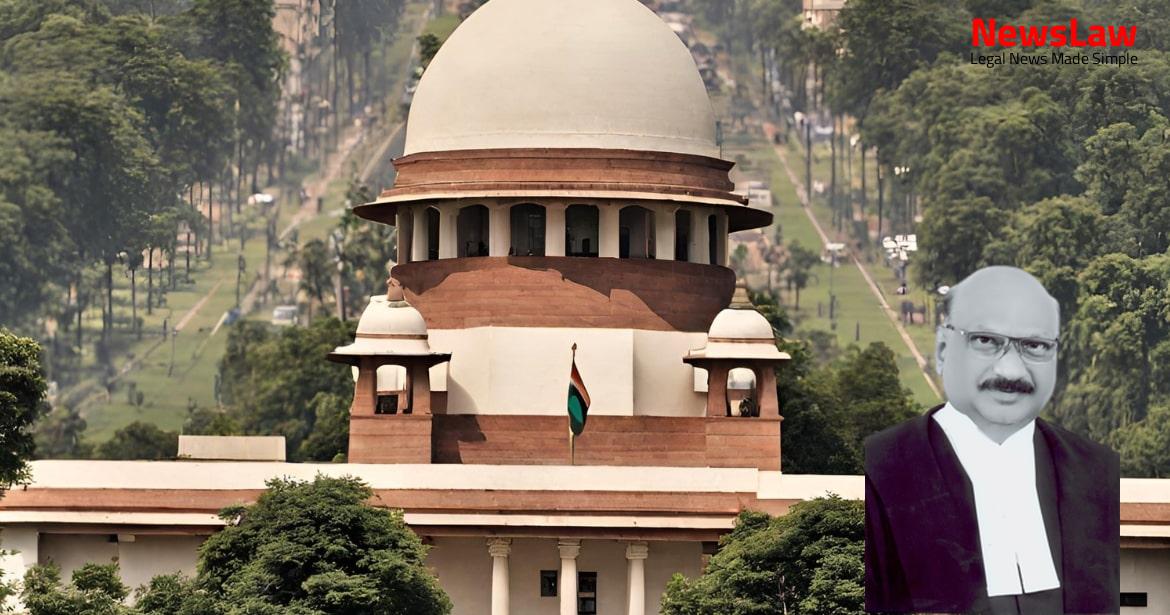A landmark judgment by the Supreme Court of India has addressed the issue of domicile-based reservation in PG Medical Courses. This case delves into the constitutional validity of such reservations and the implications on admission processes. The ruling has far-reaching consequences for merit-based admissions and the criteria for eligibility in government medical colleges.
Facts
- The High Court of Punjab and Haryana at Chandigarh has held invalid the provisions related to domicile/residence-based reservation in the prospectus of a Medical College.
- The High Court directed the cancellation of admissions made under the invalid reservation and a fresh admission process based on merit from the National Eligibility-Cum-Entrance Test.
- Appellants whose admissions were to be canceled, the UT of Chandigarh, and the Medical College have appealed against the High Court’s decision.
- The High Court noted the issue of reservation based on domicile was never challenged and did not comment on it.
- The Court emphasized the need to review the calculation of institutional preference seats to ensure fairness in admissions.
- The judgments and orders of the High Court related to the reservation system for PG Medical Courses were questioned and appealed against.
- The background and legal aspects leading to the challenge of domicile/residence-based reservation in PG Medical Courses were outlined and discussed.
- Specific cases and orders related to the admission processes and challenges to domicile/residence-based reservation were presented in the summary.
- The appellant was initially allotted a seat in M.S. in General Surgery in the first round of counselling under the UT Chandigarh Pool Quota.
- Despite not being mandated for other candidates, the Medical College required the appellant to surrender her seat before the second round of counselling.
- The appellant later secured a seat in M.S. in Obstetrics and Gynaecology and paid the fees on 05.04.2019.
- The Medical Council of India was ordered to be impleaded in the proceedings by the order dated 06.05.2019.
- The agreed appellants participated in counselling, secured seats, and paid fees, while contesting respondents questioned domicile/residence-based reservation.
- Post Graduate Medical Courses in the Government Medical College and Hospital, Chandigarh were considered and governed by a common order.
- The appellants in the appeals arising out of SLP(C) No 11477 of 2019 are the Union Territory of Chandigarh and the Government Medical College and Hospital, Chandigarh, challenging domicile/residence-based reservation.
- All the appellants are aggrieved by the impugned order dated 23.04.2019 and have raised similar grounds of challenge.
- Appellants in SLP(C) No 11441 of 2019 appeared in NEET-PG 2019, secured ranks and faced jeopardy in admission due to the impugned order.
- Various candidates filed impleading applications in the petitions and the admission of this specific appellant was also in jeopardy resulting in her appeal.
Also Read: State of Rajasthan v. Sheeshpal: Upholding Justice and Fairness
Issue
- The High Court considered the issue of domicile/residence-based reservation in admission to ‘PG Medical Courses.’
- The Court raised questions regarding the constitutionality of such reservation and its permissibility.
- The High Court referred to past Supreme Court decisions, including Dr. Pradeep Jain v. Union of India and Saurabh Chaudri v. Union of India, to analyze the legality of domicile/residence-based reservation.
- The High Court disapproved certain stipulations in the prospectus related to domicile/residence-based reservation.
- The Court noted that the main issue to be addressed was whether preference given in the prospectus amounted to 100% reservation for a specific category of candidates.
- The issue of preferential treatment based on residence alone was set aside by the High Court based on previous Supreme Court pronouncements.
- The High Court focused on the issue of reservation based on domicile and its permissibility under Article 15 of the Constitution of India.
- The Court considered specific criteria related to domicile/residence for eligibility in the reservation category.
- The Constitution Bench had previously addressed and disposed of the question of reservation based on domicile.
- The surviving issue, as identified by the High Court, revolved around the reservation criteria based on domicile/residence.
Also Read: Analysis of Preferential Transactions and Financial Creditor Status
Arguments
- The appellants (UT Chandigarh and the Medical College) filled up PG seats by dividing them into 50% for All India Quota and 50% by institutional preference from their own students
- The High Court in Dr. Chahat Bhatia disapproved this practice stating it was repeatedly disapproved and had attained finality
- The High Court assumed that all observations in Dr. Pradeep Jain stood since the Constitution Bench in Saurabh Chaudri largely approved it in relation to institutional preference
- The appellants’ criteria for filling up the PG seats was challenged for being arbitrary and unlawful, but they argued it did not violate equality and could not set aside admissions for 2019-20 without a specific prayer
- An alternative submission was made to reconsider reservation based on domicile/residence for PG Medical Courses by a Larger Bench
- The counsel argued that the Constitution Bench in Saurabh Chaudri did not disapprove domicile/residence-based reservation for PG Medical Courses
- Constitution Bench dealing with reference in Saurabh Chaudhri focused on two key questions
- The core question in writ petitions and appeal is the constitutional validity of reservation based on domicile or institution in admission to postgraduate courses in government-run medical colleges
Also Read: Fair Consideration for Promotion Criteria in Judicial Appointments
Analysis
- In the case of State of U.P. v. Pradip Tandon, a three-Judge Bench considered the constitutionality of the instructions framed by the State of Uttar Pradesh for reservation in medical colleges in favor of candidates from rural and hill areas.
- The rule in question exempted students who were ‘bona fide residents’ of Madhya Bharat from paying capitation fees.
- The term ‘bona fide residence’ was defined broadly to include various categories of individuals connected to Madhya Bharat.
- The High Court in Dr. Chahat Bhatia’s case dealt with similar issues of domicile/residence-based reservation in educational institutions.
- The High Court found the stipulations in the information bulletin for PGET-2014, providing institutional preference based on domicile, to be contrary to the principles established in the Pradeep Jain case.
- It was observed that such reservations based on domicile were unsustainable as they did not have a rational nexus with the objective of merit-based admissions to PG Medical Courses.
- The High Court highlighted the rejection of domicile/residence-based reservation in the Saurabh Chaudri and Dr. Pradeep Jain cases, emphasizing the importance of admissions based on merit.
- The Court also discussed the distinguishable concepts of ‘domicile’ and ‘place of birth’ in the context of discrimination under Article 15(1) of the Indian Constitution.
- The Court rejected the contention that the imposition of capitation fees only on non-residents violated Article 14, citing the upheld classification based on residence.
- Various legal sources and precedents were cited to support the reasoning behind the rejection of domicile/residence-based reservations in PG Medical Courses.
- The judgement discusses the admissions to PG Medical Courses being based on merit and NEET scores.
- The controversy around domicile/residence-based reservation for rural areas in relation to admissions is highlighted.
- The clause regarding domicile/residence-based reservation in UT Chandigarh is examined, particularly Clause 2B of the prospectus.
- The potential consequences of providing domicile/residence-based reservation exclusively for institutional preference are debated.
- Different scenarios and interpretations of the domicile/residence-based reservation clause are outlined.
- The necessity of rational and reasonable implementation of domicile/residence-based reservation is emphasized.
- The High Court’s decision to strike down certain clauses of the prospectus is discussed.
- The necessity of a Larger Bench’s examination of domicile/residence-based reservation in relation to PG Medical Courses is recommended.
- References to previous cases and constitutional provisions regarding domicile/residence-based reservation are made.
- The possible impact of NEET on institutional preference and domicile/residence-based reservation is considered.
- Children of persons who have held immovable property in Union Territory of Chandigarh for at least five years before the application deadline are eligible.
- The property must be in the name of the parents or the candidate themselves.
- This criteria provides an opportunity for children of property holders in Chandigarh to apply for a specific purpose.
Decision
- Interim orders related to domicile/residence-based reservation in admission to PG Medical Courses will continue until further orders.
- State Quota seats, other than institutional preference seats, need to be filled up in a permissible manner.
- The matters will be presented before the Chief Justice of India for the constitution of an appropriate Larger Bench.
Case Title: TANVI BEHL Vs. SHREY GOEL
Case Number: C.A. No.-009289-009289 / 2019



